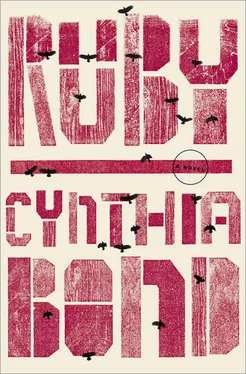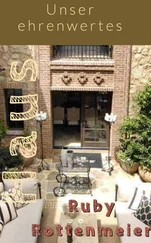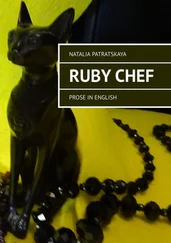In spite of his observances Otha worked. She realized in that moment, that in the months she had been there, no one on earth knew what her hands were doing. She hadn’t known either except that she had felt compelled to move them as if she were lacing at Miss Barbara’s. Now as the Devil looked down at her work, she could see it as well. Reams and reams of lace filled the room, dangled out the window and unfurled into the sky. Her fingers had not moved in vain. She had been making lace out of night air and moonbeams, pine scent and starlight. She had made it frantically, feverishly. There was a piece made from morning dew and the tears of her son, another out of mother love. The stretch of sky and the corners of the ceiling above was her tat. She saw it reach out and cover a bit of the sky. It was a thin blanket of intricate cream, softening the rude sun. It was meant to calm the oceans and filter the oil from the skies. It was a net to save the planet, to catch the earth in her downward spiral and hold her safe. There was only a fragment of it finished, but its beauty was breathtaking; delicate, sparkling perfection. It was her offering to life.
Otha had to admit that it felt good to know that at least one other person could see what she had been doing, could see the importance of her work, even if that person was the Devil.
“Ma’am,” the Devil asked, “are you going to sign for this?”
“Yes, of course,” Otha said and set down her work. It was a special delivery. Why hadn’t she seen that before? She reached out and his pen arranged itself between her fingers and she watched her signature spreading beneath her, while he rested in the doorway.
“What’s it say?” he asked. “Don’t see many with postage like that.”
Then Otha felt the envelope flap tearing between her forefinger and thumb. The letter floated above her, the words moving like lice across the page. She saw that it was a list of names, alphabetically placed in a column. Halfway down she saw Otha Jennings written there. Then she looked up at the top. It was a death announcement, and the list grew longer and longer until it hit the floor and rolled onto the Devil’s foot. He smiled as it lit like a fuse and leapt into flames. It caught the edge of the moonbeam lace; in seconds it had burned all that she had woven that night, then for the last month; it was racing out the window until Otha grabbed the tail of the fire and, burning her hands, threw it to the ground and crushed it between her toes.
“Doesn’t matter. It still won’t hold,” the Devil said as he crooked his hat to the side. “It won’t hold against the fire in the sky.” She heard the comfortable gait of his step as he sifted through the closed door and left the room.
She began to work again in earnest. Night air and ephemeral light woven into the lace, into her Rapunzel lace rope that would save her and the world. The only difference now was that Otha knew she would lose.
OTHA JENNINGS remained in the Colored ward of Dearing State Mental Hospital for eight years until she was transferred to Kindred Mental Hospital in Albuquerque, New Mexico, in July of 1945, where she met her death. She received one visit from her son and daughter during her stay, after which she requested that no family members be allowed into the visiting area, especially her son. Her chart claimed that she was amiable and never a trouble. It said that she was, above all things, very quiet.
Chauncy Rankin walked bare-chested along the back pathway towards Ruby’s house, his soiled shirt and suit jacket slung over his arm, the rain soaking the weave of his slacks, his good shoes collecting mud. He marched straight towards Bell land. It was only two miles out of the way, but he figured he’d be home in time for the mourning meal and Junie hadn’t really been his favorite great-uncle anyway.
Chauncy walked up to Ruby’s door and knocked. The rain made the sound dull and hollow, so he peeked inside. The place looked like church, clean as a rifle in winter. He figured she hadn’t gone far. Then, sure enough, just to the side, he saw her, hugging against an old chinaberry tree, naked except for a sheet wrapped around her. Chauncy was always amazed at Ruby’s shenanigans. Once he’d come and she had piled a mound of dirt on top of her. She tickled him. He knew she only played at crazy, that it was a put-on thing that let her do the nasty things she liked to do. In all of his visits she’d never once said no.
Chauncy looked at Ruby clinging to the tree, wet sheet sticking to her body. She looked even better than she had that morning, too skinny, but legs as long as the River Nile. Ephram Jennings was no fool. He stood and looked at the girl’s hair, all wet and moving like black oil rolling down her back. It was what folks called talking hair. Everyone had something to say about it. He leaned against the damp of the house and watched her quietly, his hand resting loosely against his crotch.
EPHRAM HAD let the rain wash him clean through. His clothes, down to his drawers, were sopping wet, and he didn’t care. His shoes squished when he walked, his socks smacking against his soles. The Naugahyde bag he had packed hung easily from his left hand. Celia would notice the tracks he had made into her home. There was no way to avoid it. He had been compelled.
Ephram had watched Chauncy huff away, then suddenly he had felt as if the soil beneath him had all but lifted his feet and set them walking, Gubber and the rest calling after. Still he had walked back to Celia’s and swiftly thrown his things into his only piece of luggage, the one he used to accompany Celia to the Holiness convention last April. He had packed like a man in a burning house, grabbing, stuffing only what he would need.
He was out of Celia’s house in less than twenty minutes. The path was wet and in places the color of brick. He collected that good road in the cuff of his slacks, and nearly sprinted to P & K Market. He was glad that Miss P was either a good enough businesswoman or a bad enough neighbor to keep the store open during Junie’s funeral. He would ask her to pack the chocolate ice cream in a plastic bag with ice. That way it would be perfect when he handed it over to Ruby Bell.
RUBY WAS once again the tree. She had slept morning into afternoon and had awakened to soft caws singing through the rain. She’d walked outside and luckily stepped over the streak of wet red powder on her doorstep, not in it, then she’d walked to her chinaberry and the old bird perched on high. She loved how winding and gnarled the roots were, how firmly they held to the soil. Again, Ruby felt her limbs and sternum twist and knot as they pushed deep into earth. A great bank of life rushed through her as she felt herself reaching up, until her branches trembled in the wind and soft rain, the tiny green beads quivering like bells, waiting for birds to pluck them. She felt the crow’s talons holding tightly to one of her branches. The old bird said, Child, I’d watch myself if I was you . Which is how Ruby knew to turn around and face Chauncy Rankin, not two inches from taking off her sheet.
It took her a moment to remember that she was a woman. As a tree she had nothing to fear from Chauncy. The way he looked at her hair made her remember. He reached down and lifted a bit of the damp curls.
Ruby did not want Chauncy. What she wanted was to collect raindrops on her leaves and to nourish her roots. What she wanted was to stand with the wisdom of the chinaberry in her marrow and then walk into the door of her polished home. What she wanted was for the man Ephram to come back to that home and make her coffee, or dish up the ice cream he had promised to bring, or to put a comb through her hair. She wanted to smell the slight musk of him, and watch the purple she had discovered in his eyes. But Ruby was well trained in not following her wants and desires.
Читать дальше












